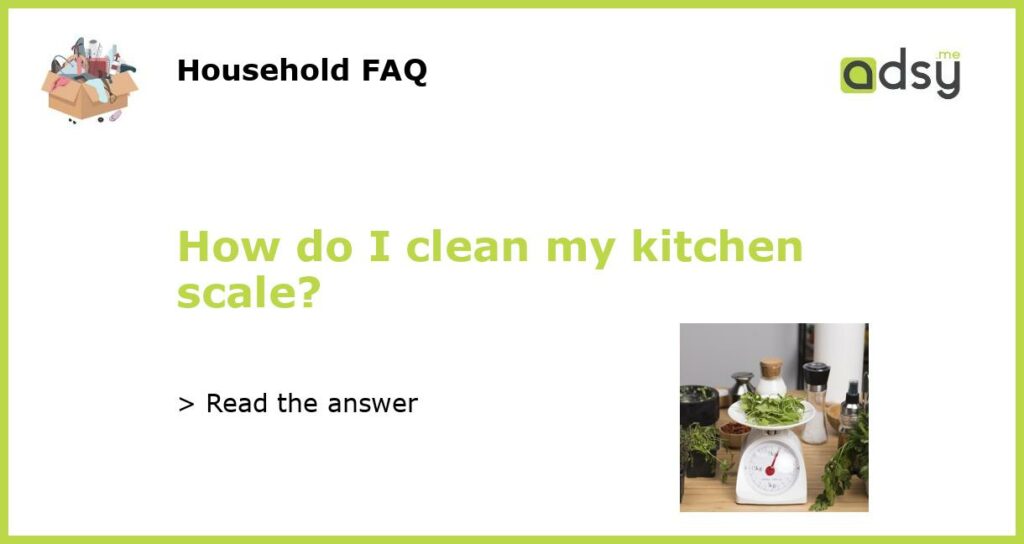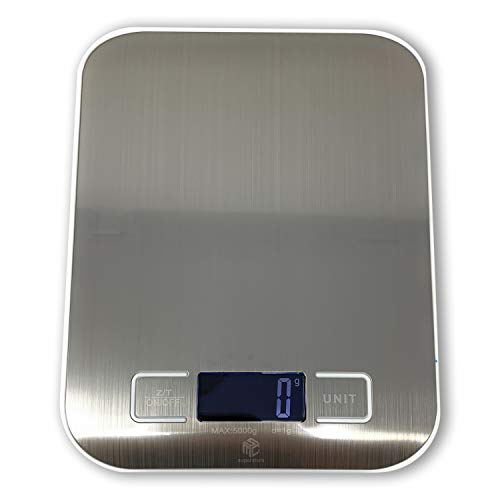Why It’s Important to Clean Your Kitchen Scale
A kitchen scale is an essential tool for any home cook or baker. It allows you to accurately measure ingredients and ensure consistent results in your recipes. However, like any other kitchen gadget, your scale can become dirty and even contaminated with bacteria if not cleaned properly. Regular cleaning of your kitchen scale not only keeps it hygienic but also prolongs its lifespan. Here’s how to do it:
What You Need to Clean Your Kitchen Scale
Cleaning your kitchen scale is a simple and straightforward process that requires only a few items that you likely already have in your home:
- Mild dish soap
- Warm water
- Microfiber cloth or sponge
- Cotton swabs
- Isopropyl alcohol
Step-by-Step Guide to Cleaning Your Kitchen Scale
Follow these steps to clean your kitchen scale:
- Remove any batteries or power sources from your scale.
- Dampen your microfiber cloth or sponge with warm water and mild dish soap.
- Gently wipe down the surface of your scale, including the weighing platform and any buttons or crevices.
- Use cotton swabs dipped in isopropyl alcohol to clean hard-to-reach areas and remove any remaining grime or bacteria.
- Allow your scale to air dry completely before using it again.
Tips for Maintaining Your Kitchen Scale
Here are a few tips for keeping your kitchen scale in tip-top shape:
- Never submerge your scale in water or use abrasive cleaners.
- Handle your scale gently to avoid damage to the weighing platform or sensors.
- Store your scale in a dry, cool place away from direct sunlight.
- Replace batteries as needed and follow the manufacturer’s instructions for calibration and use.
The Bottom Line
Cleaning your kitchen scale is a quick and easy process that should become a regular part of your kitchen routine. By following these simple steps and tips, you can keep your scale hygienic and functioning smoothly for years to come.






